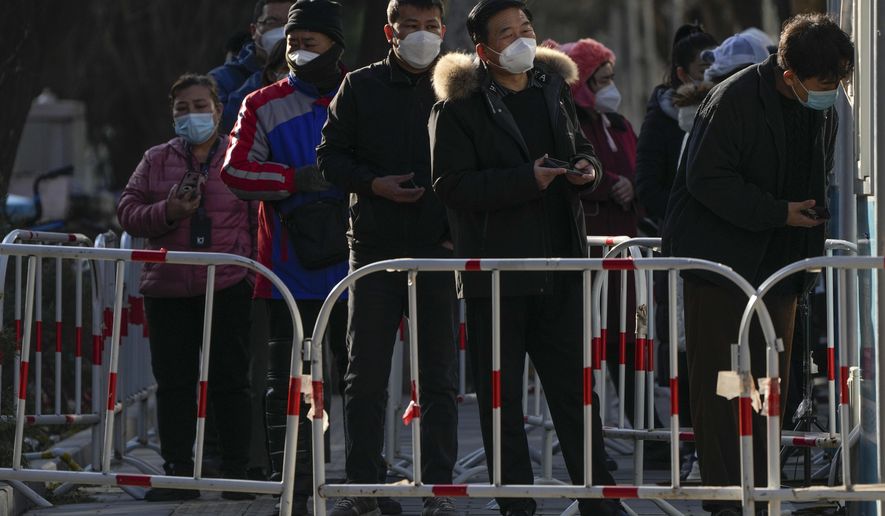China eased some of its most stringent anti-virus policies on Wednesday in the clearest pivot from “zero-COVID” policies that sparked uncommon public protests in recent weeks.
State media announced new guidelines that would allow people to quarantine at home instead of a special facility and move away from the QR codes that indicated a person’s health status and determined whether they could enter many places.
In another big change, travelers within China won’t have to produce a negative test upon their arrival. Many people travel to see family elsewhere in the country for the Lunar New Year, which is a month away.
The guidelines would permit lockdowns only in “high-risk areas” and prohibit anyone from blocking fire escapes or apartment entrances.
Public protests erupted in November after a deadly fire in the western Xinjiang region. People said that COVID-19 restrictions may have hindered the response.
The communist government’s zero-COVID policies, which attempt to thwart any sign of the virus, have been a drag on the economy.
Beijing is relaxing its rules after President Xi Jinping won an unprecedented third term at a recent Congress. Some local governments had begun to ease their rules before the national change.
The new guidelines put an emphasis on increasing vaccinations. While a large percentage of elderly residents are vaccinated, the rate of booster shots is low, and there are doubts about whether Chinese vaccines are as effective as the messenger-RNA shots used in the West.
Scientists fear China will go through a rough period as it relaxes its strict policies given the lack of immunity from vaccinations or prior infections.
For more information, visit The Washington Times COVID-19 resource page.
• Tom Howell Jr. can be reached at thowell@washingtontimes.com.




Please read our comment policy before commenting.